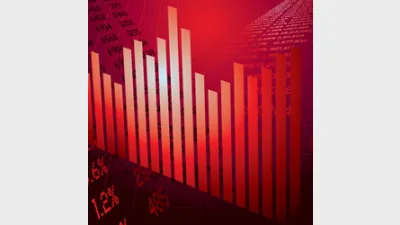How canny equities investors can spot opportunities



Equities markets provide opportunities for some, but not all, in 2010 says Bob van Munster.
The general consensus at the start of 2010 seemed to be that the worst was behind us and Australia was well and truly on the road to recovery.
While at Tyndall we are cautiously optimistic for the year ahead, our emphasis is on caution rather than optimism.
With a number of global factors in play, notably concerns about sovereign risk and uncertainty about the sustainability of the US recovery and China’s growth outlook, investors will need all their skill and research to navigate the potentially choppy waters.
At the beginning of the year there were a wide range of predictions from leading brokers on where the S&P/ASX 200 Index may finish up in 2010, which gives an indication of the differing viewpoints and opinions among the experts.
Those who were more bullish picked highs of 6,000, basing their forecasts on a strong and rapidly improving economic outlook for the global economy.
More bearish commentators saw 4,500 as a more reasonable level for the index, believing the markets have had a good run already leading to high valuations, and that economic risks around the world will come to the fore during 2010.
For the more optimistic, the leading economic indicators have supported their views. During 2009, risk assets such as equities, credit and commodities largely followed indicators such as the OECD Economic Indicator, which pointed to very robust economic world growth going forward. Indeed, this indicator was at a 40-year high.
However, this doesn’t mean that these indicators will promise future growth given the structural problems in the Western world that could derail the recovery, such as the high level of fiscal deficits and, in turn, sovereign risk.
In our view, the Australian market should deliver a positive return in 2010, with low inflation and accommodating government policies providing a good backdrop for equity markets. However, market conditions will be choppy, and this means that stock selection will be paramount.
Some of the key areas we will be looking at include the following.
Valuations
Despite the recent market falls, price/earnings are currently higher than average, which is not unusual during an economic rebound, as market participants anticipate and price in higher earnings growth.
But if the earnings outcomes are not as strong as anticipated, these valuations will start to look unreasonable, and share prices are likely to suffer. The risk is that earnings expectations will not be met, except in the more cyclical sectors and stocks.
China
China has been, in many ways, the shining beacon for equity markets, particularly for Australia, which has relied heavily on China’s growth and demand for resources to lead us out of the downturn.
While commodity markets remain broadly positive, albeit volatile, Chinese authorities are starting to take stimulatory policies off the table, which could have a knock-on effect on Australia’s growth.
Interest rates
The ‘carry’ trade, where low interest rates induced investors to buy assets on a momentum basis including the Australian dollar and commodities, has been responsible for a great deal of the share price increases over the last six months.
However, as interest rates start to rise, the carry trade is likely to unwind, which poses another risk for resources and commodities.
With so many crosswinds in play, and stock selection becoming paramount, investors will need to concentrate on two things in order to identify opportunities in the market — finding companies for which earnings growth has been underestimated by the market, and finding companies that will benefit from specific policy developments such as regulatory changes.
For instance, there are companies that have been left behind by the rising market, where the market has underestimated the leverage effect of the cyclical turnaround.
This provides opportunities for value investors, particularly companies in the transport, building and materials sectors.
The healthcare and telecommunications sectors are also attractive in the medium to long term.
For instance, the Government's policy changes around the National Broadband Network (NBN) could create good opportunities for companies operating in this sector. And the ageing of Australia’s population will ultimately overtake any regulatory imposts, and presents long-term value for investors in the healthcare sector.
Reporting season
At time of writing, the reporting season is in full swing. Analysts are looking for five main areas as indicators of how companies will perform during the course of 2010. They are:
- Earnings outcomes — will a company beat expectations or not?
- Future outlook — what indications will a company give on its outlook for the future? Overall, analysts are expecting a fairly subdued reporting season with flat profits over the six months to December 2009 but then substantial growth over the 18 months to June 2011. They will be looking for confirmation that this view is correct and, in some cases, exceeded.
- Use of capital — companies will need to show that they are using capital wisely. During the global financial crisis, there were a number of capital raisings to shore up company balance sheets and prepare for a worst-case scenario. As a result, there are now many companies with excess capital on their balance sheets. How they utilise this capital (eg, bringing forward capital expenditure, increasing dividends, undertaking share buy backs, etc) and reward shareholders will be an important factor in assessing how they will perform.
- Cost pressures — costs will be closely watched for instance in markets where the supply of labour is tight, such as engineers in the resources sector.
- Dividend policies — the usual expectation is that, as the economic environment improves, companies will increase their dividends and payout ratios. Those that don’t will be viewed negatively, even if they make positive statements about their outlook. Companies will need to back up their positive statements with positive dividends in order to show their outlooks are robust.
Overall, we expect the Australian share market will deliver a positive return in 2010, however, it will be a more subdued outcome than last year’s 37 per cent return.
It won’t be smooth sailing either, with a number of risks and crosswinds in play. Global factors, specifically sovereign and banking risks as well as China policy outcomes, are also likely to be a dominant influence, especially on a day-to-day basis.
With volatility set to remain a feature for 2010, stock selection will be key.
Bob Van Munster is the head of equities at Tyndall Investment Management.
Recommended for you
The central bank has released its decision on the official cash rate following its November monetary policy meeting.
ASIC has cancelled the AFSL of a Melbourne-based managed investment scheme operator over a failure to pay industry levies and meet its statutory audit and financial reporting lodgement obligations.
Melbourne advice firm Hewison Private Wealth has marked four decades of service after making its start in 1985 as a “truly independent advice business” in a largely product-led market.
HLB Mann Judd Perth has announced its acquisition of a WA business advisory firm, growing its presence in the region, along with 10 appointments across the firm’s national network.











